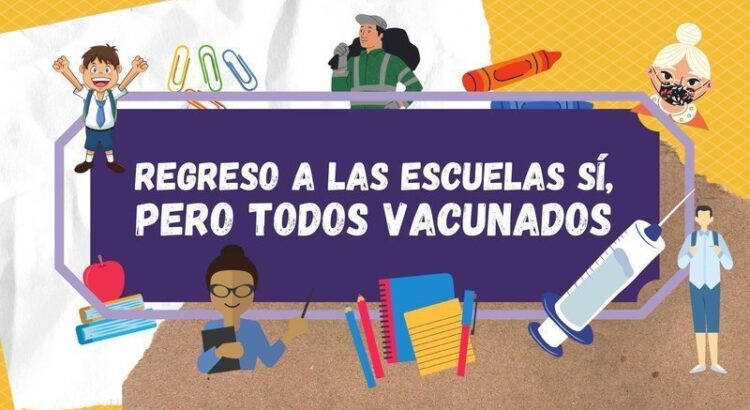Docentes de diversos niveles educativos se dieron cita este 3 de junio a las afueras de las oficinas de la SEP para brindar una conferencia de prensa en el marco del anuncio de dicha secretaría para el regreso a las aulas.
Conferencia de prensa por un regreso a la clases presenciales con todas las medidas necesarias para evitar más contagios.
Algunos de los participantes fueron maestras y maestros de la CDMX, UPN, IPN, UNAM, SUTIEMS, ENSM, FEDEF 25, además de trabajadores de la educación jubilados. También hubo mensajes desde Veracruz, Oaxaca, Chihuahua y Guanajuato.
Hablaron organizaciones como la Agrupación Magisterial y Normalista Nuestra Clase, Movimiento Magisterial y Popular-CNTE Veracruz, CNTE-IPN, un jubilado de la CNTE e integrantes del Movimiento #UNAMNoPaga, así como una estudiante de la la FES Iztacala-UNAM, de la Agrupación Juvenil Anticapitalista, una madre de familia y desde Veracruz envió su participación el colectivo Insurgencia Magisterial.

Destacó además la participación del Comité por la reapertura de la Normal Rural de El Mexe, Hidalgo y de estudiantes normalistas de Mactumactzá, quienes denunciaron la represión contra el normalismo.
En varias participaciones se destacó que todos queremos regresar, pero sin arriesgar las vidas de los docentes, alumnos y sus familias y que no van a permitir que se imponga un regreso inseguro, sin que esté toda la población vacunada y las escuelas sigan en malas condiciones, ya que muchas padecen de falta de agua, no se cuenta con espacio suficiente para mantener la sana distancia y tampoco se cuenta con insumos sanitarios ni personal suficientes.

También se dijo que es falso que esta política de regreso a clases tenga que ver con el “interés superior de la niñez” con la intención de contrarrestar el rezago educativo provocado por la “educación a distancia” o de darles contención emocional a las y los alumnos, sino que responde al interés político y económico de imponer una “nueva normalidad” para favorecer al empresariado, cuando los efectos devastadores de la pandemia de Covid-19 en nuestro país, son padecidos principalmente por los trabajadores y sectores populares.
Algunas de las exigencias son un regreso con toda la población vacunada, escuelas con insumos sanitarios, agua, espacios suficientes; con grupos reducidos, médicos y psicólogos en cada una de las escuelas, para lo cual se considera necesario un incremento sustancial del presupuesto a la educación, que podría provenir de reorientar el gasto público destinado a pagar la deuda externa y a financiar las Fuerzas Armadas.

También exigen el cese a la represión y el desprocesamiento incondicional de todos los estudiantes normalistas detenidos por defender el derecho a la educación.
Además hicieron un llamado a las organizaciones democráticas y combativas del sector educativo, así como al resto de las trabajadoras y trabajadores de la educación, a organizarse y movilizarse unitariamente, junto a las madres y padres de familia y el movimiento estudiantil, para luchar por escuelas dignas y seguras como condición necesaria para el regreso presencial, así como en defensa de la educación pública y gratuita y por los derechos de toda población.
Esto a la par que maestros y normalistas de la Agrupación Nuestra Clase que también participan de la conferencia presentaron una campaña de firmas por un regreso a clases presenciales sí, pero con toda la población vacunada, la cual ha sumado más de 25 mil firmas.
Fuente e imagen: laizquierdadiario










 Users Today : 95
Users Today : 95 Total Users : 35459561
Total Users : 35459561 Views Today : 152
Views Today : 152 Total views : 3417910
Total views : 3417910